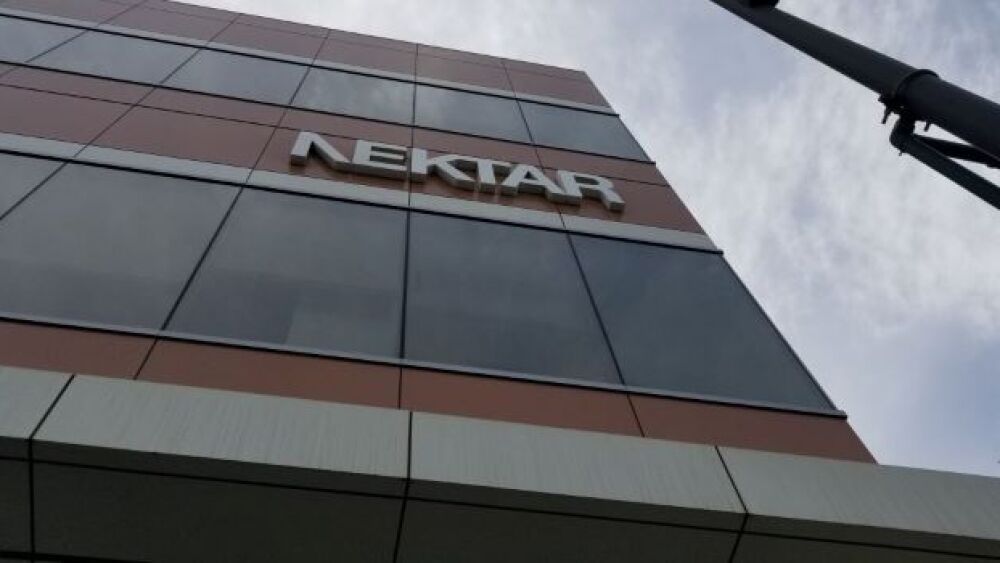Nektar Therapeutics outlined a strategic reorganization plan that includes cutting 70% of its workforce. This comes only weeks after BMS abandoned its clinical collaboration program with Nektar.
Courtesy of Smith Collection/Gado via Getty Images
On Monday, Nektar Therapeutics outlined a strategic reorganization plan that includes cutting 70% of its workforce. This comes only weeks after Bristol Myers Squibb abandoned its clinical collaboration program with Nektar on bladder cancer and renal cell carcinoma.
In a conference call with investors, Nektar president and CEO Howard W. Robin broke down the plan into three pillars.
“The key elements of our plan are as follows,” Robin said. “First focus our efforts on value-enhancing data and other milestones with our key programs that can drive increased shareholder value over time.”
The second, he said, was to right-size the organization to align with the need for resources to drive key development programs and research initiatives.
“And finally, ensure Nektar has cash runway through the first half of 2025 with the existing capital on hand.”
In particular, Robin noted, the company is refocusing on programs NKTR-358 and NKTR-255.
Nektar has numerous ongoing collaborations with Eli Lilly, Merck KGaA, Darmstadt, Germany, Fred Hutchinson Cancer Center, MD Anderson Cancer Center and Stanford University School of Medicine.
The BMS decision was a blow, causing Nektar shares to plummet more than 24%. The decision was based on disappointing data from two Phase III trials of Nektar’s bempegaldesleukin with BMS’s checkpoint inhibitor Opdivo to treat bladder cancer and renal cell carcinoma. Earlier, they had stopped two trials, Phase III Pivot-IO-001 and Pivot-12 in melanoma after unsatisfactory results.
Robin noted that the focus of NKTR-358 was on maximum royalty participation. It is partnered with Eli Lilly on this program and includes an ongoing Phase II trial in lupus, another Phase II trial in atopic dermatitis that will launch soon, and a third Phase II trial for an undisclosed autoimmune indication that it hopes to initiate in 2023.
Under the deal with Lilly, Nektar is eligible for up to $250 million in milestone payments, and Nektar will have the option to participate in Phase III development up to 25% on an indication-by-indication basis, with double-digit royalties on global sales after an initial tier in the mid-teens and the second tier in the low twenties.
A more cautious approach is indicated with its continuing development of NKTR-255, focusing on preclinical and emerging clinical data. Merck KGaA has an ongoing Javelin Bladder Medley Study, while they will also focus new research on the drug’s potential as a cell therapy potentiator.
Early research has suggested NKTR-255 may improve CAR-T cell persistence. As such, it has two trials ongoing with external collaborations to study the drug, an IL-15 agonist, with CAR-T therapies. It is also running dose-escalation development work in combination with antibody-dependent cell-mediated cytotoxicity (ADCC) therapies.
And third, the company plans to invest in core research programs that complement its pipeline by entering into new collaboration deals. The first is with Biolojic Design for a unique bivalent agonistic antibody that targets TNFR2. There are two other programs that come out of Nektar in autoimmune diseases and cancer.
In connection with the new priorities, the C-suite is making changes as well. Dr. Dimitry Nuyten, M.D., Ph.D., Nektar’s chief medical officer, is stepping down after a transition through June 2022. Dr. Brian Kotzin, M.D., Nektar’s Head of Immunology, will take over as CMO. He was previously interim CMO. John Northcott, the company’s chief commercial officer, is leaving the company in June as well but will stay on as a strategic consulting advisory through the end of the year.
Part of the strategy is to continue with the cash they have, which should run for about three years, without needing to raise external funds. Nektar expects to end the year with about $440 to $450 million in cash and investments and no debt on its balance sheet.
Robin added, “Our new operating plan is designed to ensure we have at least three years of cash runway to support the advancement of our key programs through a steady stream of data catalysts that we expect will begin in the second half of 2022. On behalf of our entire Nektar management team and Board, I want to express my deep and humble gratitude to the employees who will be departing Nektar. We are immensely grateful for the contributions you have made to our company, your dedication to our mission and your efforts to work to bring new medicines to patients with debilitating diseases.”





